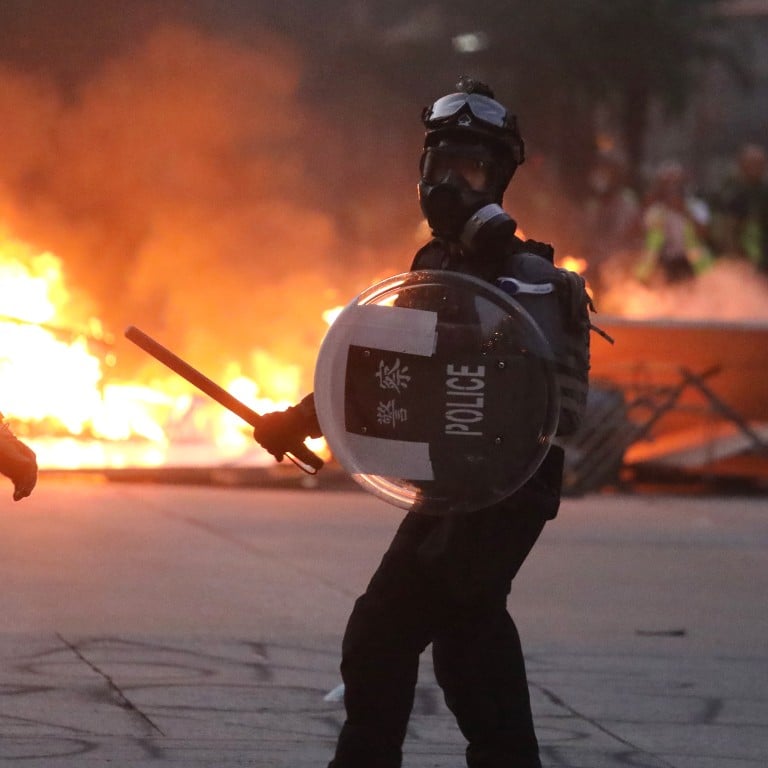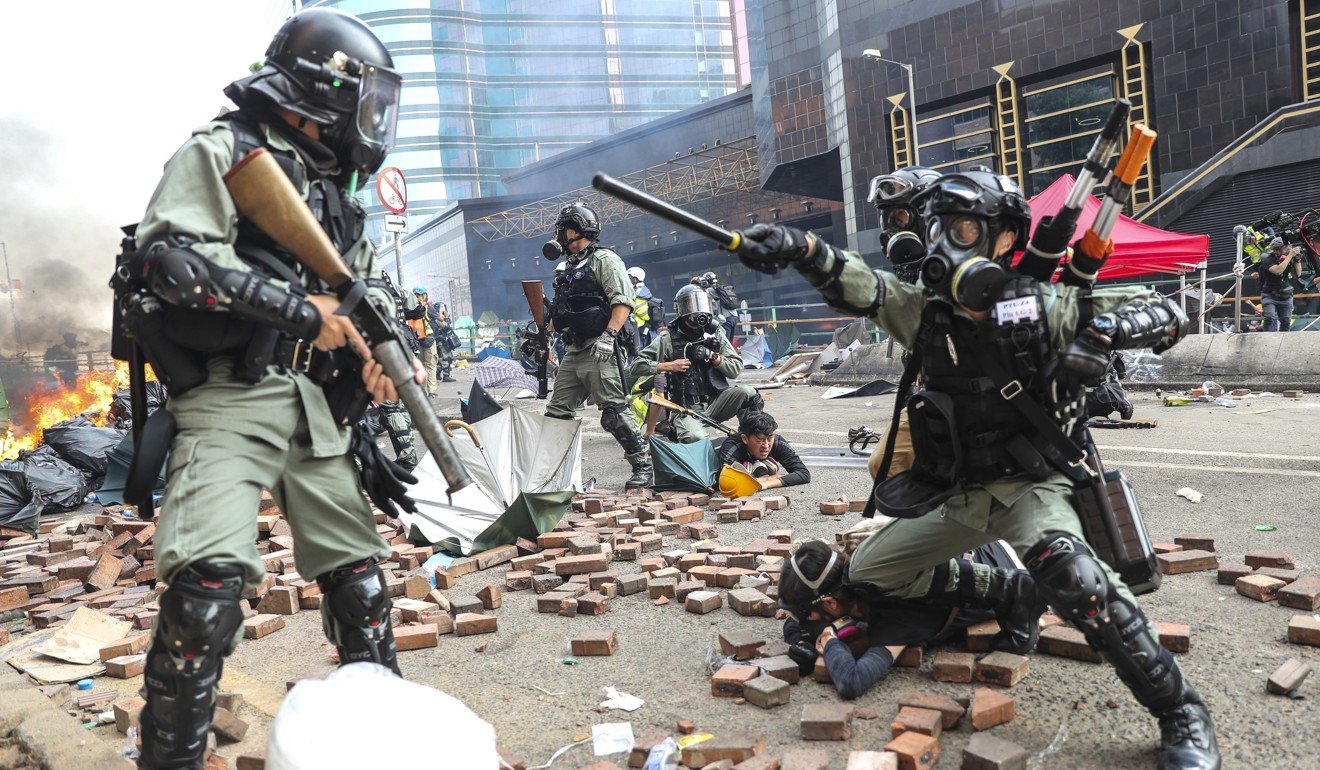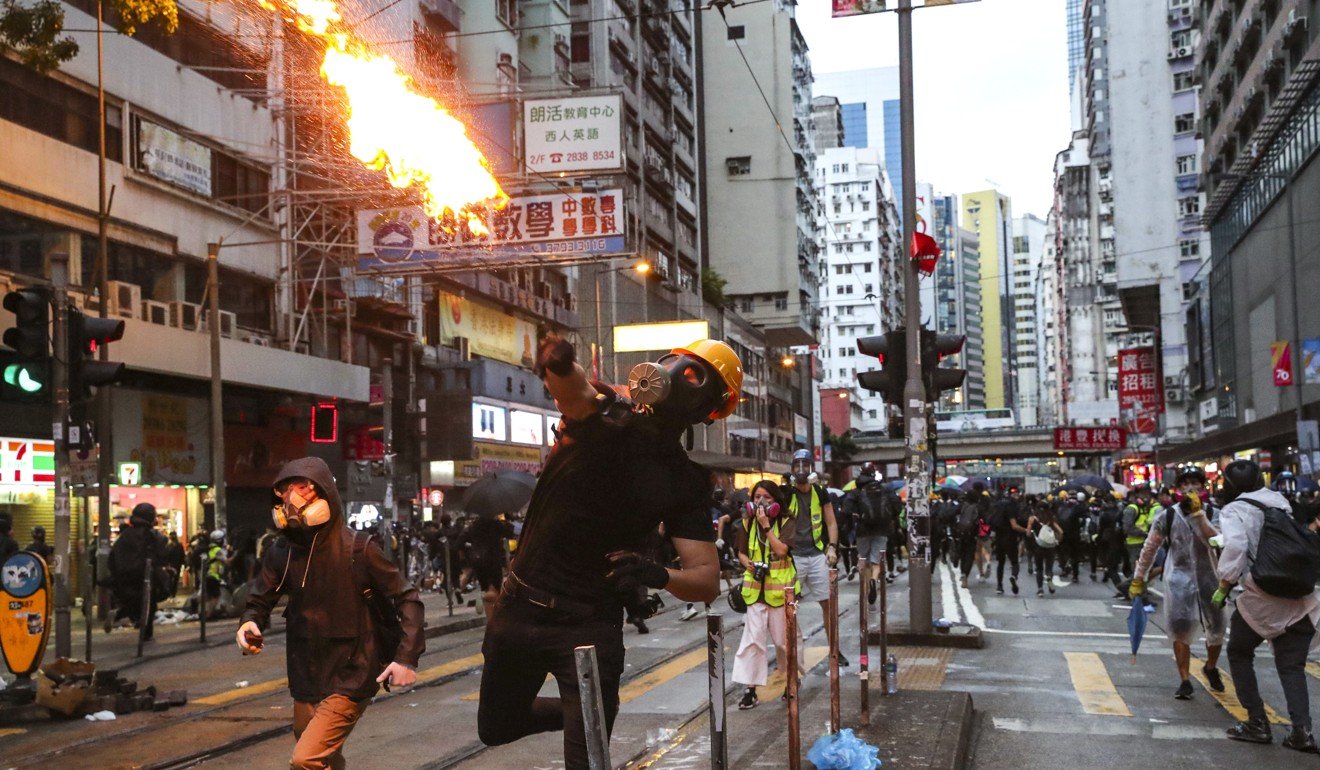
Unions band together to challenge opposition lawmakers’ bid to deny Hong Kong police a pay rise
- Pan-democrats want officers excluded from annual discussion on funding for civil servants
- Unions accuse group of politicising issue after force’s continued clashes with anti-government protesters
Three civil service unions on Thursday joined arms to oppose a call by pan-democrats to exclude Hong Kong’s embattled police from the government funding request for public servants’ annual pay rise.
The separate submissions from the Hong Kong Senior Government Officers Association, Government Employees Association, and Model Scale 1 Staff Consultative Council (Staff Side), came a day ahead of the legislature’s Finance Committee meeting, which was set to scrutinise the funding application for the pay rise concerning more than 176,000 civil servants.
The development was prompted by a joint letter from pro-democracy lawmakers and almost 400 newly elected district councillors from the same camp on Monday, where they asked the government to remove police from the funding request. They argued there must be a separate discussion on pay rises for police, with the force coming come under fire for its handling of anti-government protests since June.
The Hong Kong Senior Government Officers Association said the pay rise mechanism hinged on six factors, including the economy, the government’s financial situation and public servants’ morale.
“It does not include any consideration over the performance of individual departments or staff,” it wrote.

The association appealed to lawmakers to respect the existing mechanism, which had been recognised by both the unions and the government for years.
The Government Employees Association, which has close ties with the Beijing-friendly Federation of Trade Unions, said the pay rise should not be politicised and members of the public should express their discontent towards civil servants through established channels.
“Police officers are part of the civil service. We do not agree with the suggestion to hive off their pay rise from the funding request,” it wrote. “There is no precedent for that.”
The Model Scale 1 Staff Consultative Council (Staff Side), which represents junior staff, said the funding application for pay increments had already been postponed for months.
The item was originally expected to be scrutinised before the Legislative Council’s summer recess, but it was forced to close early after protesters stormed and vandalised the building on July 1.
Thomas So Chau-ming, chairman (staff side) of the Disciplined Services Consultative Council, said the pan-democrats’ suggestion was unfair.
“There is no mechanism to single out a force or a department when it comes to public servants’ annual pay rise,” said So, who is a Government Flying Services representative on the council.
“This time the politicians are not happy with police. What if next time they are not satisfied with the service of the Immigration Department or others?”

But Democratic Party leader Wu Chi-wai argued police had been dragging down the city’s governance and that the civil service unions’ attitude was not helpful in easing the deadlock.
“By bundling the funding request, the government is actually hijacking the welfare of all civil servants who deserve the pay rises,” he said.
“Handling the pay increments for police and the rest of the civil servants separately is actually the most desirable way to solve the problem.”
Five Civic Party lawmakers on Thursday also wrote to Finance Committee chairman Chan Kin-por, urging him to invite Commissioner of Police Chris Tang Ping-keung to attend the meeting and directly address questions from legislators regarding the funding requests concerning the force.
In June, Chief Executive Carrie Lam Cheng Yuet-ngor and her Executive Council decided to give senior civil servants pay increments of 4.75 per cent, and rises of 5.26 per cent for those in the lower and middle salary bands.
Human rights group and pan-democrats have criticised police for their heavy-handed approach towards protesters in increasingly violent confrontations. Since June, more than 16,000 rounds of tear gas, 10,000 rubber bullets, 2,000 beanbag rounds and 1,850 sponge grenades have been fired at protesters, who have thrown petrol bombs and bricks at police, and targeted them with bows and arrows.
Additional reporting by Christy Leung

